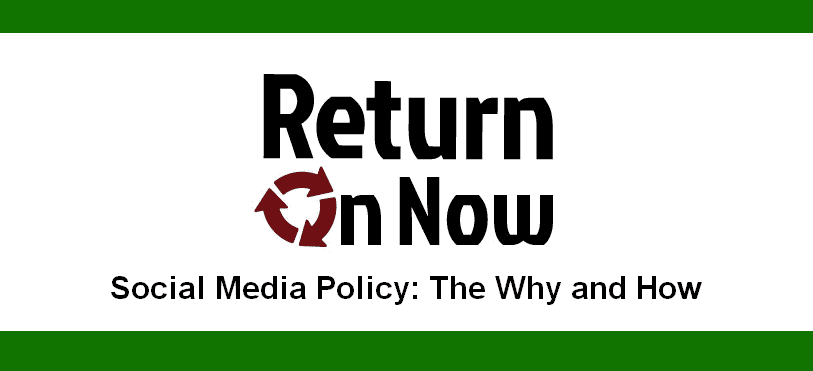Social media continues to grow in use and acceptance. Meanwhile, it is becoming more complicated. Let’s look at the rationale for rolling out a social media policy within your company.
Social Media Complication
Brands are especially impacted by growth.
Once companies expand beyond 50 or 100 employees, new problems enter the picture.
For example:
- Social Media for the brand becomes too much for a single person to manage.
- There are more users of social tools across the business. They may all be commenting about the company, its products, its customers, or many other topics.
- Prospects and customers expect social media to extend beyond just the PR or marketing teams. This can include customer service and often executives as well.
As a startup, it is far more feasible to have a single gatekeeper own all of your social efforts.
That person may be an owner, a marketing director, or even a PR rep.
But as your customer base and product list grows, that one person will quickly find themselves overwhelmed.
With growing staff, there are two issues to keep in mind.
First, you now have access to a much larger network of contacts through those individuals. If they decide to speak highly of you or your business, you stand to get some outstanding exposure.
Secondly, though, there is risk involved. Imaging if they decide to blast you online.
In other words, more social media users internally poses opportunity and risk.
Finally, social media is no longer the craft of only the PR folks. At some point in your growth curve, you will need to figure out how to incorporate all customer-facing functions via an official social media policy.
Social Media Policy: Building Structure As You Grow
In the early days of social media marketing, even the largest companies exerted control over the medium by either not doing it or limiting access to a select few individuals.
They quickly realized the complications listed above and had to adapt.
Enter the Social Media Policy
It took a while for everyone to get on board, but you would be hard pressed today to find a Fortune 1000 company without a social media policy.
Let’s look at our definition of the term “social media policy”:
A social media policy outlines the roles, behaviors, governance, and enforcement required to ensure appropriate behavior for all stakeholders who participate in social media activities on behalf of the company.
So basically, it defines the who, the what, and the how. It draws lines between good and bad behavior for branding or legal reasons.
It encourages participation and involvement, but within reasonable bounds.
Next Page: Key Components of a Good Social Media Policy
Tommy Landry
Latest posts by Tommy Landry (see all)
- Where AI Introduces Risk Into Revenue Planning - February 19, 2026
- AI Is Already Influencing Your Forecasting. Do You Know Where? - February 18, 2026
- AI -Driven Discoverability Presentation at AIMA (January 2026, Full Video) - February 17, 2026





